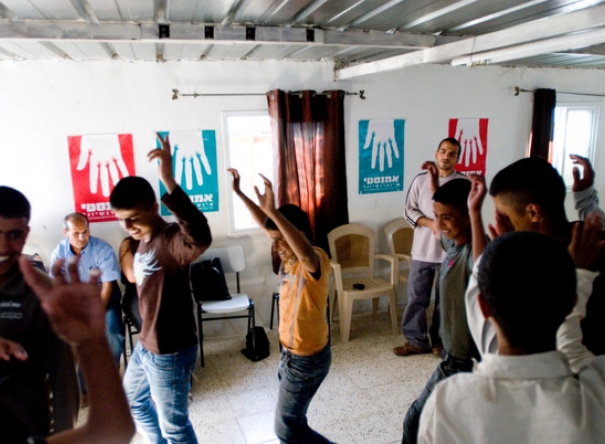 The Norwegian section of Amnesty International was awarded Operation Day in 1990 and NRK TV campaign in 1999.
The Norwegian section of Amnesty International was awarded Operation Day in 1990 and NRK TV campaign in 1999.
Time to use experience
In 1999 the Norwegian NGO received a contribution from the government (25 million). This sum was reserved for educational purposes because the organization cannot receive state money, unless they are purely for educational purposes. The money from the TV campaign was channeled into the global educational project "Rights Education Action Program (REAP)".
– Amnesty now wants to use the experience and resources we have developed through UTF and REAP," says Eikås, left.
She says that Amnesty International Norway has cooperated with the local Amnesty International sections in many countries.
– Organizational development and training of the Human rights education coordinators have been an important part of the work. The programs were previously targeted to the countries in the south such as Morocco, Turkey, Thailand, India and Argentina. But after the fall of the wall we noticed a growing interest from countries in Eastern Europe. Therefore we expanded the project to include countries such as Moldova, Slovenia, the Russian Federation and Poland.
Teaching of imams and prison directors
Vibeke Eikås tells about the training of imams in women’s rights, human rights education for prison directors in Morocco, courses for schools in Moldova, and the establishment of human rights clubs in Poland.
– It is important to find the right channels when to disseminate human rights," she says and shows a picture book for children that illustrate what it is like to grow up as Roma children in Slovenia. The aim of another project was to teach health workers in South Africa on women’s rights in relation to HIV and AIDS.
– These are projects that have provided concrete tangible results for the people it affects.
Pressure from below essential
– In human rights work it is essential to create a pressure from below. We must engage people to grasp the human rights challenges in their own country. This is why human rights education is so important. People must have knowledge of their rights to demand changes," said Eikås.
A core area has been to train the so-called "multipliers" who teach others to engage in human rights edu cation. They may be young people, teachers, journalists and religious leaders.
cation. They may be young people, teachers, journalists and religious leaders.
– These are people who by virtue of their position can spread human rights awareness and commitment to larger groups, to local schools and villages," she continues.
Norway – powerhouse of HR education
The new International Centre for Human Rights Education should serve as a resource center, where we will plan and coordinate new programs, evaluate and develop existing and contribute to skills development and strengthening of the large international network of human rights education coordinators.
– We will make Norway a powerhouse in human rights education!," said Vibeke Eikås.
Related links:
Bergen House in 2010: moments gone by in defense of human rights
Amnesty International Norway and the Union of Education sign an agreement on cooperation


